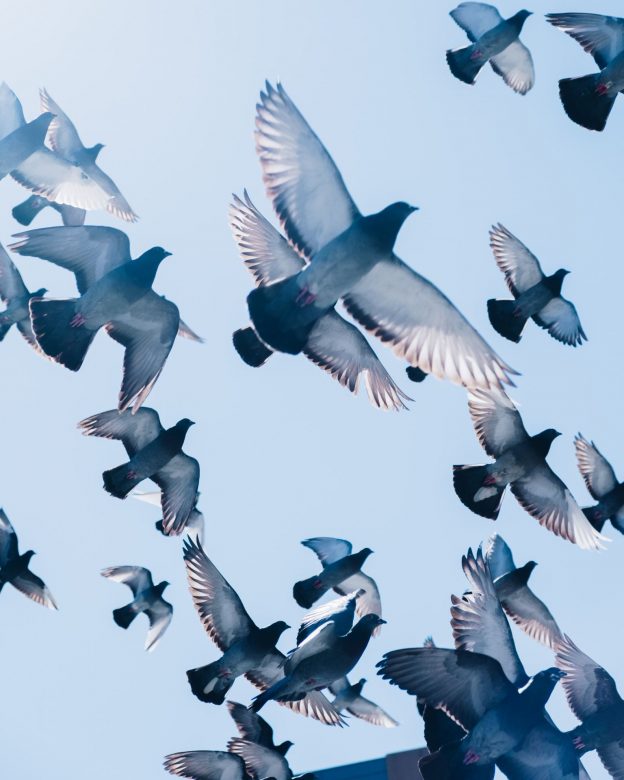(Or, ‘Oh for the wings of several doves’)
Here’s a story which doesn’t end well, for at least one man and probably for several medieval birds, but which nevertheless has a certain charm, and affords some interesting glimpses into women and gender as well as fighting. It comes from the crown pleas section of the rolls for the Eyre of Gloucestershire, 1287.[i]
Jurors of the vill of [Chipping] Campden reported that there had been a bit of a fight there one Sunday in 46 Henry III (1261-2) as a result of goings on at a singing and dancing event for women. Now, the entry does not quite say this, but I assume that this was in some sense a competitive event, with the prize being … pigeons! (Or ‘doves’, if we want to buy into pro-columbidae propaganda strategy…). To be absolutely honest, there is no ‘competition’ word, it just says that the women were singing and dancing ‘for pigeons’. So it could be some weird pigeon-pleasing event laid on by the women of the area, or something of semi-religious significance (doves, Holy Spirit and all that)[ii] or general carolling.
Whatever was going on exactly,[iii] it all turned rather unpleasant. Just like the judgment of Paris, only more … pigeony … it seems there was some dispute as to who should get the pigeons. A certain Walter de Campden wanted to give them to one woman with whom he was connected (I am assuming she was a Campden lass), but others, including Henry [le Parker], groom of Simon le Barber, came and took the doves and gave them to another woman, of their affinity. Thus, the fight was sparked off. Henry shot a man in the belly so that he died at once. Henry then ran away, but was followed by the men of Campden and caught, taken back to Campden and imprisoned. He was only detained there for two days, however, before a mob of supporters broke him out and took him to Tewkesbury. The fighting seems to have escalated from that point, and the men of Campden and Tewkesbury clearly had a bit of a beef, and the whole thing was still on their minds in 1287. Some of those involved had died by 1287. Henry still seems to have been alive, but had fled, and was outlawed.
Of the pigeons and the rival singers and dancers we hear no more, very sadly.
The homicide and the Campden – Tewkesbury rivalry are, of course, interesting, but it’s the nuggets about women singing and dancing in the hope of going home with a pigeon or two that intrigues me. All and any information about social activities beneath the elite level is valuable, and I rather like to think of the excitement that women must have had preparing for this sort of event. Even if it did end in a homicidal bloodbath from time to time …
GS
20/3/2022
Image: some pigeons, obvs. Photo by Zac Ong on Unsplash
[i] For other records of the same case, see here, here and here.
[ii] – though I note that we are not told that it was some special festival – it’s just ‘some Sunday’ in a particular year – and surely if singing for pigeons was attached to some particular feast, surely we would be told what it was …
[iii] [And if anyone thinks I have got this wrong, do let me know – it’s always possible. May well be that every medievalist should know that singing for doves was very much a thing, or meant something utterly different to what I am imagining here … but I have never come across it before.]
